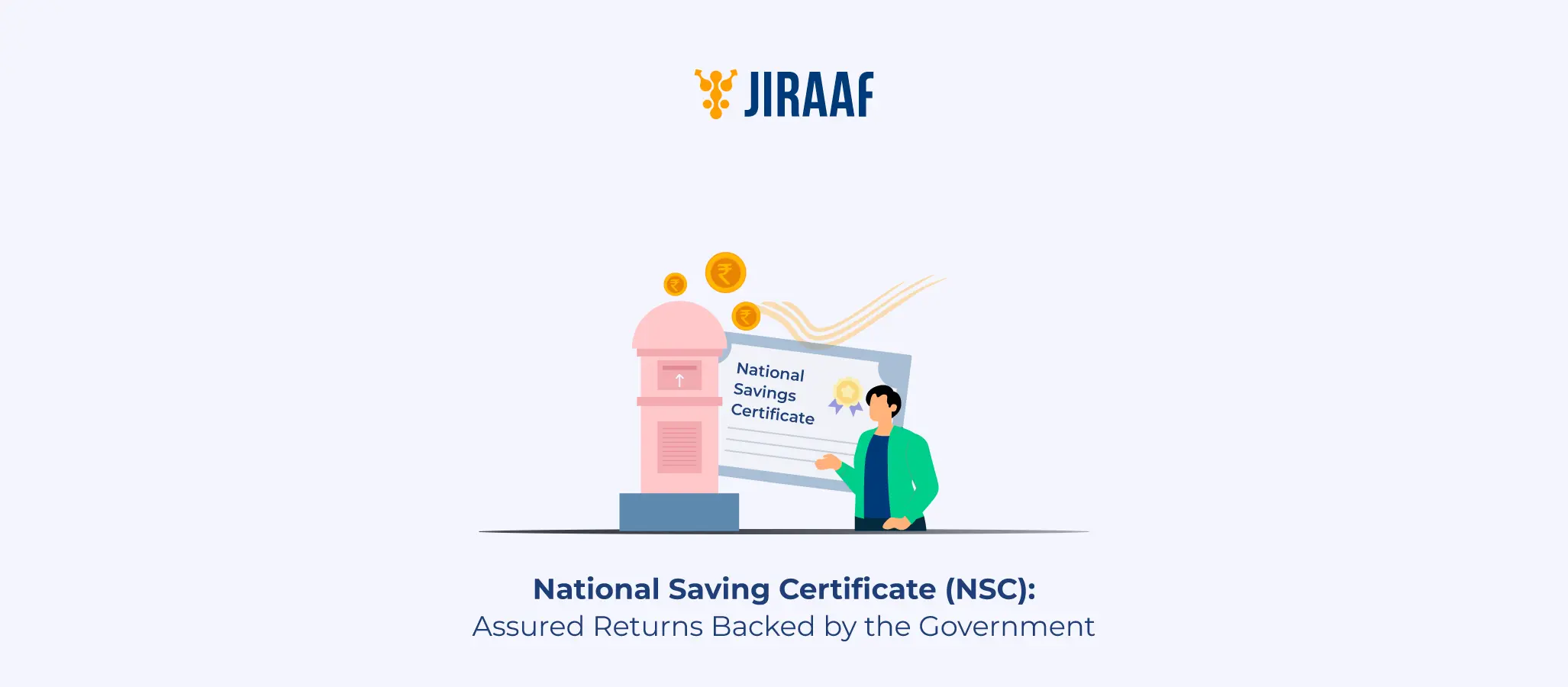For individuals seeking a low-risk, government-backed saving option with predictable returns, the National Saving Certificate (NSC) continues to be one of the most reliable instruments. Offered by the Indian government through the postal system, this fixed-income savings bond encourages small- to medium-scale investments while offering tax benefits under Section 80C of the Income Tax Act.
As of 2025, the NSC scheme has retained its relevance for risk-averse investors looking for secure returns with minimum operational complexity. In this detailed guide, we will explore the scheme’s features, interest rates, return calculations, tax implications, payout structure, retirement suitability, and investment process.
What is the National Saving Certificate Scheme?
The National Saving Certificate (NSC) is a fixed-income savings scheme offered by the Government of India and is available at all India Post offices. It is designed to promote the habit of saving among middle and lower-income individuals, especially in semi-urban and rural India.
Key Highlights:
- NSC is a 5-year savings bond.
- Backed by the central government for capital safety.
- Fixed interest rate revised quarterly by the Ministry of Finance.
- Investment qualifies for tax deduction under Section 80C.
- Returns are compounded annually but paid at maturity.
NSC is a favorite among salaried professionals, parents saving for their children’s future, and conservative investors prioritizing capital safety.
Key Features of NSC Saving Scheme
1. Fixed Tenure
- NSC has a 5-year lock-in period.
- There is no option but to choose a different duration.
2. Interest Rate
- For FY 2025–26 Q2, the NSC interest rate is 7.7% per annum, compounded annually.
3. Minimum and Maximum Investment
- Minimum: ₹1,000
- Maximum: No upper limit (although only ₹1.5 lakh per annum qualifies for tax deduction)
4. Tax Benefit
- Eligible under Section 80C up to ₹1.5 lakh per year.
5. Mode of Holding
- Single account
- Joint account (up to 3 holders)
- Minor account (through guardian)
6. Transferable
- Can be transferred from one post office to another or from one holder to another under specified conditions.
NSC Scheme Interest Rate and Return Calculation
Interest Rate (as of 2025)
- 7.7% per annum, compounded annually
- Paid out only at maturity (not monthly or quarterly)
Example Calculation:
If you invest ₹1,00,000 in NSC at 7.7% annual interest rate:
| Year | Compounded Value (₹) |
| 1 | 1,07,700 |
| 2 | 1,15,678 |
| 3 | 1,24,011 |
| 4 | 1,32,729 |
| 5 | 1,41,853 |
At maturity, you receive ₹1,41,853, including the interest. The interest is not paid periodically but reinvested every year.
Benefits of Investing in the NSC Scheme
1. Government Backing
Being a central government scheme, NSC carries zero default risk.
2. Fixed Interest with Compounding
Assures steady growth through compounding.
3. Section 80C Tax Deduction
Principal invested qualifies for tax deduction up to ₹1.5 lakh.
4. Interest from First 4 Years Reinvested
The interest earned each year (except the final year) is automatically reinvested and is also eligible for 80C deductions.
5. Simple Accessibility
Available at all post offices in India and select banks.
6. Ideal for Risk-Averse Investors
Suited for investors who prioritize capital preservation over aggressive returns.
NSC Monthly Scheme and Payout Options
Does NSC offer monthly payouts?
No. NSC does not provide monthly interest payouts. The returns are compounded annually and paid in a lump sum only at maturity.
This structure benefits those who are looking to accumulate wealth over time rather than receive periodic income.
If you are looking for monthly income, alternatives include:
- Post Office Monthly Income Scheme (POMIS)
- Senior Citizens Savings Scheme (SCSS)
- Annuity plans from insurers
NSC Pension Scheme: Is It Suitable for Retirement Planning?
While NSC is not a pension scheme, it can still form part of a retirement portfolio. However, it is best used for medium-term wealth accumulation, not long-term retirement income.
Considerations:
- Not suitable for generating regular income
- Useful for locking funds for 5 years with guaranteed return
- Can be used as a bridge investment before the pension starts
For long-term retirement planning, PPF, NPS, SCSS, or annuity plans might be better suited.
How to Invest in the NSC Saving Scheme
Where to Buy:
- Available at all India Post Offices
- Select designated banks also offer NSC via counters or online portals
Investment Process:
- Visit the nearest post office or bank
- Fill out the NSC application form
- Provide KYC documents:
- Aadhaar
- PAN
- Address Proof
- Choose account type: single/joint/minor
- Pay via cash/cheque/net banking/UPI
- Collect the e-certificate or physical certificate (if available)
Online Process (via IPPB):
- Open an IPPB account
- Link your savings account
- Purchase NSC through the IPPB app
Conclusion
The National Saving Certificate (NSC) continues to be a solid choice for conservative savers. Its government backing, fixed interest, and tax benefits make it especially appealing for middle-income individuals, retirees looking for safety, or those planning for child education over a 5-year horizon.
While NSC may not suit investors seeking monthly income or higher returns, it remains a stable pillar in a well-diversified portfolio for those prioritizing guaranteed returns and capital safety.
Before investing, always align your choices with your overall financial goals, investment horizon, and tax profile.
Discover fixed income investments with Jiraaf, a SEBI registered online bonds platform that educates and brings access to a wide array of bonds. Sign up today to explore diversified fixed income investment opportunities to support your goal-based wealth creation journey. Start investing!









